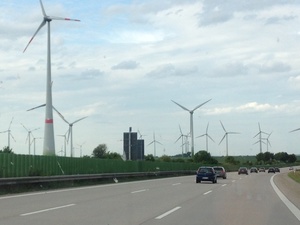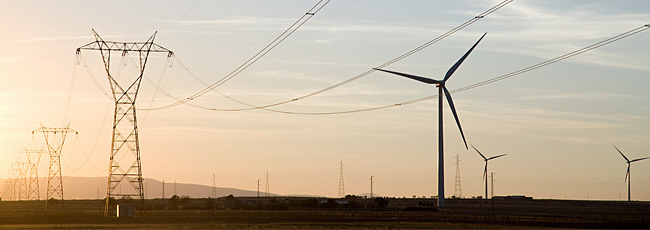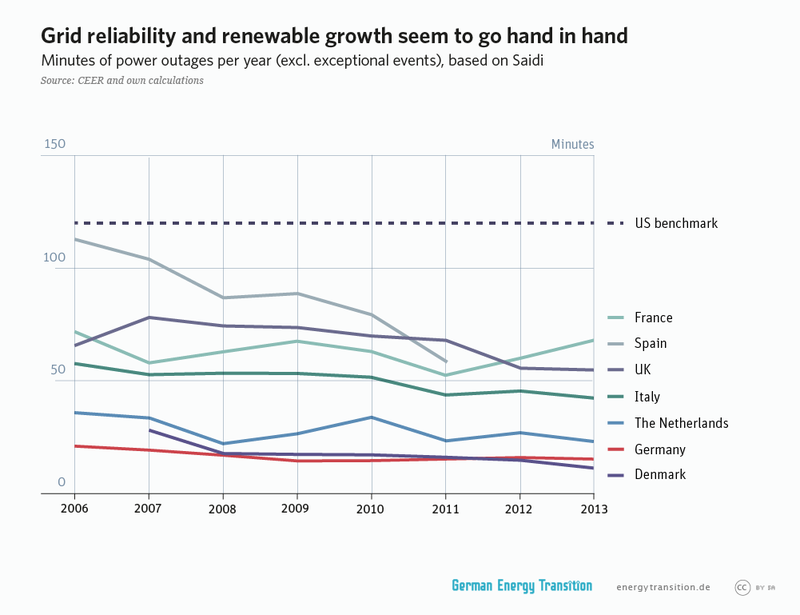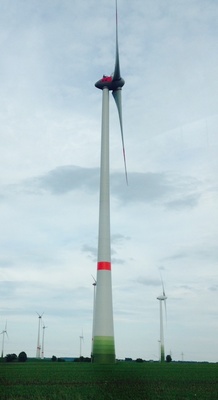News Release from windfair.net
Wind Industry Profile of
Windfair Comment: The Power of Numbers
Germany's energy transition ('Energiewende') is and remains a success story. That becomes clear every time new expansion numbers are published. But where there is success, there are also those who envy it. And in the energy sector this envy is coming especially from the camp of the incumbent energy utilities which have become rich with fossil fuels. Not only do their profits continue to slump, no, the big German utilities also still have nuclear provisions waiting to be paid: Several billion Euro to get (almost) rid of their nuclear power plants – not to mention the problem of nuclear waste storage.
And while periodically new successful performing numbers are coming in from the renewable sector, it also draws the opposite side to follow and stir up panic in the population, including the media, by publishing new numbers which can, in fact, make people anxious and fearful.
In recent days, several studies were published simultaneously, which make critics of the energy transition nod with satisfaction again. The Max Planck Institute for Biogeochemistry published a study showing that wind energy is not as effective as previously thought. It has actually been found for the first time, that wind energy is finite. Figures prove, the yield of wind turbines decreas when they are placed in wind farms. A single turbine in the open field, exposed to the whole force of the wind with no barriers, therefore has a higher yield than those turbines standing in rows or in a heap in which the foremost turbines restrict the wind. Do we really need a study for this perception?

In addition, the question remains why nobody comes up with the idea of foreign countries being included in the energy supply? Germany has imported electricity from fossil energy sources from around the world for decades. But coming to renewables strangely enough only those numbers count that can be produced domestically. With the appropriate grids and storage facilities, it is quite possible to import renewable energy from abroad. But when it comes to renewables, an unprecedented energy self-sufficiency seems to be required.
Meanwhile, another horrendous figure was brought up by the Handelsblatt: A study, commissioned by the paper itself, puts on the bill that the current customers have to pay €28 billion for the energy transition. This is reminiscent of the former Federal Environment Minister Peter Altmaier who tried to stir up panic among the population with the number of €1 trillion of costs before the EEG reform went through. The calculations that were made in this new study by the Institute of the German Industry, include both costs of promoting renewable energies, as well as costs of grid expansion.

Photo: EWEA
Are these numbers correct? Fossil energy producers repeatedly put the blame of grid expansion on renewables, but grids in Germany should have been renewed one way or the other. Even without the energy transition power lines that derive mostly from the Fifties to Seventies of last century were ailing and required urgent renewal – even if only to transport nuclear power from Bavaria to the North.
What would have happened if German grids had not been renewed in a timely manner, can regularly be seen in the US, where repeated blackouts paralyze entire regions, since the overhead lines are completely outdated.
Furthermore, the Handelsblatt quoted people who stir up fear of the future in their article: “The consequences of the energy transition are becoming a threatening location disadvantage which deters investors and creates job losses,” said Carsten Linnemann, chairman of the Small Businesses Association of the conservative CDU/CSU parties. Certainly – and fortunately – that's true for investors e.g. coming from the nuclear industry.
On the other hand, why not take a look at the number of people employed in the renewable sector? More and more people in Germany work in this industry – and the numbers are still rising. In the coming years there will be even more people employed in renewable energy industry than in Germany's former flagship, the automotive industry!
Decisions such as the recent one taken by Siemens, to build a plant for the manufacture of wind turbines and thus create 1,000 jobs in Cuxhaven, speak for themselves.
In addition to the 'horrendous' costs, the fear of blackouts is conjured by opponents of the energy transition. That worked fine with Altmaier and is dug out now again. The Handelsblatt warns of the announcement of various power plant operators to shut down up to 57 conventional power plants because of unprofitability. The German Association of Energy and Water even sees “problems for the security of energy supply”.
There's only one way to deal with those numbers: Even more numbers. So the numbers of the Federal Network Agency published last week create a very different picture: In Germany, the quality of power supply is higher than ever before. In average, German citizens in 2014 only had to face 12:28 minutes without electricity – despite a record supply of renewable energy. This number is among the lowest in the world – together with another country whose main energy supply comes from wind energy: Denmark. Meanwhile, a look at other industrialized countries makes you shudder: In the UK, people had to deal with around 60 minutes of blackout, in France and Spain the number was just under 100 minutes. In the US, people even have to deal with several hours per year without electricity.
So, how about a little more detailled look at the numbers, instead of stirring up lobby-generated panic, especially in Germany?

Photo: Energy Transition
- Author:
- Katrin Radtke
- Email:
- kr@windmesse.de


